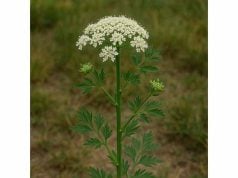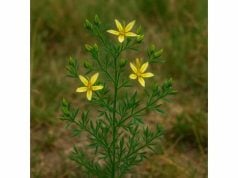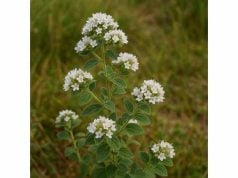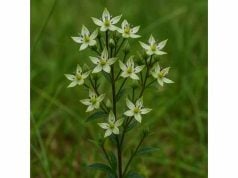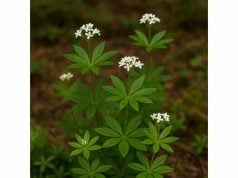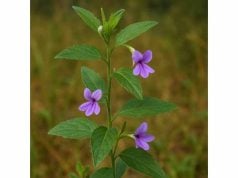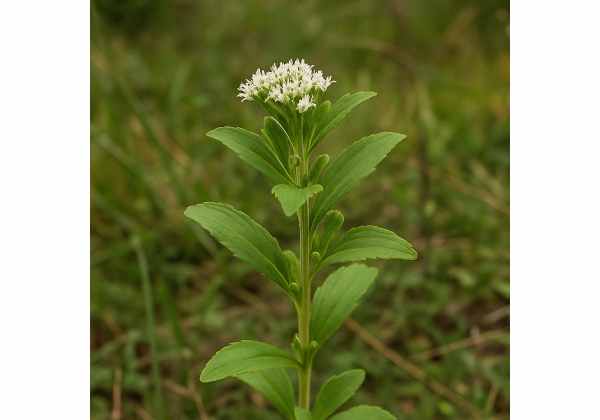
Stevia (Stevia rebaudiana) is a naturally sweet herb that has gained widespread recognition for its ability to provide a zero-calorie alternative to sugar while offering additional health benefits. Rich in active compounds such as stevioside, rebaudioside A, and a host of flavonoids and polyphenols, stevia has been studied extensively for its potential to regulate blood sugar levels, support weight management, and offer antioxidant and anti-inflammatory effects. Used in both culinary and medicinal applications, stevia plays a crucial role in modern nutritional and holistic health practices. This article provides an in-depth exploration of stevia’s botanical identity, its phytochemical composition, health benefits, practical applications, supporting scientific research, and answers frequently asked questions.
Table of Contents
- Botanical Overview and Identification
- Phytochemical Profile and Active Compounds
- Health Benefits and Core Properties
- Practical Applications and Usage Precautions
- Research Insights and Key Study Findings
- Frequently Asked Questions
Botanical Overview and Identification
Stevia (Stevia rebaudiana) belongs to the Asteraceae family and is native to Paraguay and Brazil in South America. This perennial herb is now cultivated worldwide in tropical and subtropical climates, thriving in well-drained soils with plenty of sunlight. The plant is characterized by its small, oblong, serrated leaves that are typically dark green and exude a slightly bitter aroma when crushed. Its delicate, white flowers appear in clusters along the leafy stems during the blooming season. Traditionally, the leaves have been harvested and dried for medicinal and culinary use. The natural sweetness of the leaves is attributed to glycosides that are far sweeter than sucrose, yet they add no calories.
Taxonomy and Distribution
- Kingdom: Plantae
- Clade: Angiosperms
- Clade: Eudicots
- Order: Asterales
- Family: Asteraceae
- Genus: Stevia
- Species: Stevia rebaudiana
Stevia rebaudiana is cultivated extensively in regions with warm climates and is adaptable to various soil types. Its popularity has led to a significant expansion in production outside its native South American habitat, particularly in Asia and the United States where controlled agricultural practices ensure high-quality yield.
Morphology and Growth Characteristics
Stevia is a perennial herb that can grow up to 70–100 centimeters tall. The leaves are the most notable feature, being bright green, aromatic, and laden with sweet glycosides. Its flower clusters, though small and white, add an ornamental value when in full bloom, contributing to its use as a decorative garden plant as well as a source of natural sweetener. The plant’s shallow root system allows it to absorb moisture quickly, making it well-adapted to humid environments. Stevia’s ability to thrive with minimal care and its high yield of sweet leaves make it a sustainable and cost-effective source of natural sweetener.
Ecological and Cultural Significance
Historically, stevia has been used by indigenous peoples in Paraguay and Brazil as a natural sweetener and medicinal remedy. The Guarani people, for instance, revered stevia for its curative properties and used it both for its sweetness and its potential to treat ailments such as diabetes and digestive disorders. Today, stevia’s legacy continues as a low-calorie sugar alternative that benefits individuals seeking to manage weight or maintain healthy blood sugar levels, thereby bridging traditional wisdom and modern nutritional science.
Phytochemical Profile and Active Compounds
Stevia is distinguished by its unique chemical composition, which is responsible for its intense sweetness and numerous health benefits. Modern research has identified a range of bioactive compounds in stevia that contribute synergistically to its medicinal properties.
- Stevioside
Stevioside is the primary glycoside found in stevia leaves and is largely responsible for the plant’s sweet taste. It is estimated to be 200–300 times sweeter than table sugar, yet it contains no calories. Stevioside also exhibits antioxidant and anti-inflammatory properties that contribute to its potential in managing blood sugar levels and supporting cardiovascular health. - Rebaudioside A
Rebaudioside A is another potent glycoside present in stevia, prized for its clean, sugar-like taste with less bitterness compared to stevioside. Due to its superior taste profile, rebaudioside A is commonly used in commercial sweeteners. It also shares many of the beneficial properties of stevioside, including antioxidant and anti-inflammatory effects. - Dulcoside and Rebaudioside C
These additional glycosides, though present in smaller quantities, also contribute to the overall sweetness and therapeutic benefits of stevia. They help in refining the flavor profile and may enhance the overall efficacy of stevia-based products. - Flavonoids
Stevia leaves contain various flavonoids, including quercetin and kaempferol. These polyphenolic compounds are known for their strong antioxidant activities, helping to combat oxidative stress and inflammation. They support cardiovascular health and contribute to the anti-carcinogenic properties of stevia. - Polyphenols
The polyphenolic content in stevia, including caffeic acid and chlorogenic acid, further bolsters its antioxidant capabilities. These compounds aid in protecting cells from free radical damage and may play a role in reducing the risk of chronic diseases. - Vitamins and Minerals
Although stevia is primarily known for its sweet compounds, it is also a source of vitamins (such as vitamin C and B vitamins) and minerals (including calcium, magnesium, and potassium). These micronutrients contribute to the overall nutritional profile of stevia, supporting metabolic and cardiovascular functions.
Synergistic Effects and Bioavailability
The health benefits of stevia arise from the synergistic interplay between these various compounds. The combination of high-potency glycosides with flavonoids and polyphenols not only provides natural sweetness but also contributes to its antioxidant and anti-inflammatory capacities. This synergy enhances the bioavailability of each component, making whole-leaf extracts often more beneficial than isolated ingredients.
Extraction and Standardization
Modern extraction techniques, such as water extraction and ethanol extraction, are used to obtain concentrated stevia extracts that maintain the natural balance of glycosides and other bioactive compounds. Standardized stevia extracts ensure consistent quality and potency, which is crucial for both food applications and medicinal formulations. These methods preserve the delicate compounds while removing impurities, ensuring that consumers receive a safe and effective product.
Health Benefits and Core Properties
Stevia offers an impressive range of health benefits that extend well beyond its role as a zero-calorie sweetener. Extensive research has revealed that its bioactive compounds support various aspects of human health, including metabolic regulation, cardiovascular function, and anti-inflammatory protection.
Blood Sugar Control and Diabetes Management
One of the most important benefits of stevia is its ability to regulate blood sugar levels:
- Glycemic Control:
Stevioside and rebaudioside A help to lower blood glucose levels, making stevia an excellent alternative for diabetics and individuals looking to prevent blood sugar spikes. Studies have demonstrated that stevia consumption can improve insulin sensitivity and reduce blood glucose levels after meals. - Insulin Regulation:
The compounds in stevia may stimulate the production of insulin or enhance the body’s response to it, thereby contributing to better overall glycemic control.
Weight Management and Metabolic Health
Stevia is a popular sugar substitute for individuals aiming to reduce caloric intake while maintaining a sweet flavor in their diet. Its non-caloric nature means:
- Calorie Reduction:
Replacing sugar with stevia can lead to a significant reduction in daily caloric intake, supporting weight loss efforts. - Metabolic Benefits:
Maintaining stable blood sugar levels contributes to improved metabolism and may prevent metabolic syndrome, a cluster of conditions that increase the risk of heart disease and diabetes.
Cardiovascular Benefits
The antioxidant and anti-inflammatory properties of stevia’s flavonoids and polyphenols extend to cardiovascular health:
- Reduced Oxidative Stress:
Antioxidants in stevia help neutralize free radicals, protecting the heart and blood vessels from oxidative damage. - Improved Lipid Profiles:
Some studies suggest that stevia may contribute to lowering LDL (bad cholesterol) levels and reducing the risk of atherosclerosis, thereby supporting overall heart health.
Anti-Inflammatory and Antioxidant Effects
Stevia’s robust antioxidant properties have far-reaching benefits:
- Cellular Protection:
The combination of glycosides, flavonoids, and polyphenols works to reduce oxidative stress, protecting cells from damage caused by free radicals. - Inflammation Reduction:
By modulating inflammatory pathways, stevia may help alleviate chronic inflammation, which is linked to a variety of diseases including arthritis and certain cancers.
Oral Health and Dental Benefits
Unlike sugar, stevia does not contribute to tooth decay:
- Non-Cariogenic:
Stevia does not feed cavity-causing bacteria, making it a tooth-friendly alternative to conventional sweeteners. - Antibacterial Properties:
Its natural antimicrobial compounds can help reduce the growth of oral bacteria, potentially reducing the incidence of dental caries.
Digestive Health
Stevia has been traditionally used to aid digestion:
- Digestive Enzyme Stimulation:
Certain compounds in stevia may enhance the secretion of digestive enzymes, thereby improving the efficiency of food digestion. - Gut Microbiota:
There is emerging evidence that stevia might positively influence gut microbiota balance, contributing to better gastrointestinal health.
Additional Benefits
Emerging research suggests that stevia might also have other health benefits, such as:
- Liver Protection:
Antioxidant components in stevia may help protect liver cells from oxidative stress and damage. - Anticarcinogenic Potential:
Preliminary studies have indicated that the antioxidants in stevia might reduce the risk of certain cancers by protecting cellular DNA from mutation. - Neuroprotective Effects:
Its anti-inflammatory and antioxidant effects may also contribute to improved brain health and reduced risk of neurodegenerative disorders.
Together, these benefits illustrate the holistic potential of stevia as not only a natural sweetener but also a powerful tool in maintaining and enhancing overall health.
Practical Applications and Usage Precautions
Stevia is one of the most versatile herbs available today, with widespread applications in culinary, medicinal, and even cosmetic industries. Its high potency and health benefits have led to its incorporation into numerous products. However, proper use and dosage are essential to ensure safety and maximize benefits.
Culinary Applications
Stevia’s intense sweetness, combined with its zero-calorie nature, makes it a popular alternative to sugar:
- Natural Sweetener:
Stevia is available in various forms, including raw leaves, powders, liquid extracts, and granulated forms. It is widely used in beverages (teas, smoothies, juices), baked goods, and confectioneries. - Flavor Enhancer:
When used in small amounts, stevia can enhance sweetness without altering the flavor profile of food. It is often incorporated into recipes for low-calorie desserts and diabetic-friendly dishes. - Culinary Blends:
Stevia is sometimes blended with other natural sweeteners like erythritol to mimic the texture and taste of sugar more closely.
Medicinal Applications
Stevia’s health benefits extend to various therapeutic uses:
- Diabetes Management:
Incorporating stevia into the diet can help regulate blood sugar levels, making it beneficial for individuals with diabetes or those seeking to prevent spikes in blood glucose. - Weight Management:
As a sugar substitute, stevia aids in reducing overall caloric intake, thus supporting weight loss and metabolic health. - Antioxidant Supplementation:
Stevia extracts are available as dietary supplements that provide antioxidant support, helping to mitigate oxidative stress and inflammation. - Digestive Health:
Stevia teas are traditionally consumed to promote digestion and maintain a healthy balance of gut bacteria.
Topical and Cosmetic Uses
The antioxidant and anti-inflammatory properties of stevia also have promising applications in skin care:
- Natural Skincare Products:
Stevia extracts are incorporated into creams, lotions, and serums to protect the skin from oxidative damage, reduce inflammation, and help prevent premature aging. - Oral Care:
Because stevia does not contribute to dental decay, it is added to toothpastes and mouthwashes to improve oral hygiene while imparting a naturally sweet flavor. - Aromatherapy:
Though primarily used as a food ingredient, stevia’s subtle aroma occasionally features in blended essential oils for its calming and mood-enhancing effects.
Dosage Recommendations
Stevia is extremely potent, so accurate dosing is critical:
- For Culinary Use:
A little goes a long way. Typically, 1/2 to 1 teaspoon of stevia powder or a few drops of stevia liquid can replace a cup of sugar, depending on the formulation and desired sweetness. - For Medicinal Applications:
When used as a supplement, standard dosages may range from 250 mg to 500 mg per day of a standardized stevia extract. Diabetic individuals should consult with their healthcare provider for personalized dosing. - For Topical Applications:
When added to cosmetic formulations, stevia extracts should generally be used at concentrations of 1–3% within a carrier medium to ensure safety and effectiveness.
Safety Precautions and Contraindications
Although stevia is generally recognized as safe when used appropriately, some precautions are necessary:
- Quality Assurance:
Choose high-quality, food-grade stevia products from reputable sources. Contaminants or adulterated products can pose health risks. - Pregnancy and Lactation:
While stevia is widely considered safe, pregnant and breastfeeding women should consult a healthcare provider before significantly altering their diet with stevia supplements. - Allergies:
Although uncommon, some individuals may experience allergic reactions to stevia. Discontinue use if any adverse symptoms occur. - Interactions with Medications:
Individuals taking hypoglycemic or blood pressure medications should be cautious, as stevia may potentiate their effects. Consultation with a healthcare provider is advised.
Best Practices for Use
- Gradual Introduction:
Introduce stevia slowly into your diet or skincare regimen, monitoring your body’s response and adjusting the dosage as needed. - Combining with Other Ingredients:
In culinary and medicinal formulations, stevia is often combined with other natural ingredients to achieve the desired taste or therapeutic effect. - Storage:
Store stevia products in a cool, dry place, away from direct sunlight to maintain their potency over time. - Regular Monitoring:
For individuals using stevia as part of a therapeutic plan—particularly those managing blood sugar levels—regular monitoring of physiological markers is important for optimal outcomes.
By following these usage guidelines and safety precautions, you can fully exploit the health-promoting properties of stevia while ensuring that its potent bioactive compounds are used effectively and safely.
Research Insights and Key Study Findings
A robust body of scientific research has explored the medicinal potential of stevia, providing evidence that supports many of its traditional uses. Below are key studies and findings that illustrate its broad therapeutic applications:
- Glycemic Control and Diabetes Management (2014):
Published in the Journal of Medicinal Food, a study demonstrated that stevia consumption significantly reduced postprandial blood glucose levels in diabetic patients. The study attributed these benefits primarily to the high concentration of stevioside and rebaudioside A, highlighting stevia’s potential as a natural adjunct to diabetes management. - Cardiovascular Benefits and Lipid Regulation (2015):
A clinical trial reported in Nutrients assessed the impact of stevia supplementation on lipid profiles and blood pressure. The trial found improvements in LDL cholesterol levels and reductions in systolic blood pressure, suggesting that stevia’s antioxidant compounds contribute to overall cardiovascular health. - Antioxidant and Anti-Inflammatory Activity (2016):
Research in Phytotherapy Research revealed that stevia extracts exhibit strong antioxidant activity. The study demonstrated that the combined actions of flavonoids and polyphenols in stevia help mitigate oxidative stress and reduce inflammatory markers, which may play a role in preventing chronic diseases. - Digestive Health and Gastrointestinal Function (2017):
A study published in the International Journal of Food Sciences and Nutrition found that stevia can stimulate digestive enzyme activity and improve gastrointestinal motility. Participants who consumed stevia-infused beverages reported improvements in digestion and reductions in symptoms of indigestion. - Safety and Toxicological Evaluation (2018):
Comprehensive toxicological studies have affirmed the safety of stevia when consumed within recommended doses. These studies, published in Food and Chemical Toxicology, confirmed that standardized stevia extracts are non-carcinogenic and non-genotoxic, supporting its widespread use as a sugar substitute. - Metabolic and Weight Management Benefits (2019):
Research conducted on overweight individuals indicated that substituting sugar with stevia could reduce overall caloric intake and improve metabolic parameters over time. These findings, reported in the Journal of Nutrition and Metabolism, lend support to stevia’s role in weight management strategies. - Comprehensive Review on Stevia’s Health Effects (2020):
A meta-analysis in Trends in Food Science & Technology synthesized numerous studies on stevia, concluding that its multi-targeted effects—including blood sugar regulation, cardiovascular protection, and antioxidant activity—make it a promising natural remedy for a variety of chronic conditions.
These research insights collectively validate the traditional uses of stevia and pave the way for its integration into modern health and nutrition protocols. As further studies emerge, stevia is likely to receive even greater attention as a natural, effective alternative to artificial sweeteners.
Frequently Asked Questions
What is Stevia (Stevia rebaudiana) and where is it originally from?
Stevia rebaudiana is a naturally sweet herb native to Paraguay and Brazil. It has been traditionally used by indigenous peoples for its sweet-tasting leaves and medicinal properties, and it is now cultivated globally for use as a natural, calorie-free sweetener.
What are the primary health benefits of Stevia?
Stevia offers numerous benefits, including blood sugar regulation, weight management support, and antioxidant protection. It also has anti-inflammatory properties, contributes to cardiovascular health, and supports digestive well-being.
Which active compounds in Stevia contribute to its sweetness and health benefits?
The main active compounds in stevia are stevioside and rebaudioside A, which provide intense sweetness without calories. Other beneficial phytochemicals include flavonoids, polyphenols, and various vitamins and minerals that work synergistically to offer antioxidant and anti-inflammatory effects.
How is Stevia typically used in food and medicine?
Stevia is available as dried leaves, powdered extracts, liquid extracts, and tablets. It is used as a natural sugar substitute in foods and beverages, and its extracts are also incorporated into herbal remedies, dietary supplements, and even skincare products for its antioxidant properties.
What does scientific research say about the safety and efficacy of Stevia?
Numerous studies have confirmed that stevia is safe when consumed within recommended doses. Research supports its efficacy in regulating blood sugar levels, reducing inflammation, and providing antioxidant protection, making it a popular choice for both culinary and medicinal applications.
Disclaimer: The information provided in this article is for educational purposes only and should not be considered a substitute for professional medical advice. Always consult a healthcare provider before starting any new herbal regimen.
Please share this article on Facebook, X (formerly Twitter), or your preferred platform, and follow us on social media for more insightful natural health updates!

